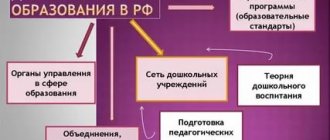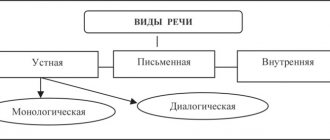Physical development: water aerobics
Swimming in the pool is good. And water aerobics is even better. Children will not only learn to float on the water, but will also be able to strengthen their muscles and develop correct posture. In water, the joints and spine rest, while the child can throw out his energy. Water aerobics teaches children to interact with each other and helps develop flexibility.
Capoeira is a Brazilian martial art that combines elements of dance, games, striking techniques, and acrobatics. Kids learn dynamism, endurance and dexterity. Both girls and boys can practice this martial art.
Circus art is a very unusual and exciting activity. Children will be taught to juggle and dance. In addition, the children will be taught acrobatics skills. Such activities will definitely appeal to active and cheerful children.
Psychological circle “I will become strong”
Clubs are one of the forms of additional education in preschool educational institutions and are aimed at expanding general and specialized knowledge, satisfying the individual interests and inclinations of children, and developing creative abilities.
Teacher-psychologist Chabin A.A. organized the psychological circle “I will become strong” with children of the preparatory group.
The purpose of the group work is to create psychological conditions that ensure the full mental and personal development of children, to create a favorable psychological climate for the development of children, taking into account the individual characteristics and inclinations of each child, through the organization of psychoprophylactic work.
When conducting group work, the teacher-psychologist uses a variety of methods and techniques:
The result of the circle work was the creation of a positive emotional atmosphere in the group, the formation of a sense of community, cohesion, and the development of joint activity skills in children.
Intellectual development: chess, robotics
Children as young as 4 years old can start playing chess. Since chess is a game, the child quickly learns this interesting activity. During the learning process, memory, logic, attention, and thinking develop. In addition, playing chess helps develop perseverance, instill in a child the will to win and determination.
Robotics is interesting to children from an early age. After all, a child can create a robot himself, even the most primitive model. Such activities help develop logical thinking, attention, and perseverance. The children learn to work with their hands, and also communicate with each other and learn to work in a team.
Mental arithmetic helps develop a child’s mental abilities so much that he can solve any example or problem in his mind. Such activities have a beneficial effect on mental abilities in general. Mental arithmetic allows you to develop thinking, logic, and memory. And you need to do it at an early age.
Additional education: club work at preschool educational institutions
Svetlana Ishmuratova
Additional education: club work at preschool educational institutions
Club work in a preschool educational institution has long become the norm of activity of the teaching staff and has gone beyond the scope of innovation. The variety of clubs and the content of their work amazes a person who is far from preschool pedagogy. However, no matter how different the circles , they have a lot in common, and in organization and functioning they are subject to general laws.
A circle is an informal , free association of children in a group for activities based on their common interest, based on additional material to the tasks of the Education and Training Program in kindergarten under the guidance of an adult (teacher)
.
We draw the attention of teachers to two points recorded in this definition. Firstly: the circle is organized based on the interests and needs of the children. At the same time, the teacher should pay attention to the wishes of the parents, which can be identified through various forms of working with them : conversations, consultations, parent-teacher , etc.
The work of the circle is based on material that exceeds the content of the state standard of preschool education . Thus , circle work in preschool educational institutions refers to additional education for children .
Clubs in kindergarten perform several functions:
- educational - every pupil of an educational institution has the opportunity to satisfy (or develop)
their cognitive needs, receive
additional development of skills in the type of activity that interests them;
- socially adaptive - classes in clubs allow students to gain socially significant experience of activity and interaction, to experience a “success situation”
, learn to assert oneself in socially approved ways;
- correctional and developmental - the educational process implemented in the circle allows you to develop the intellectual, creative, physical abilities of each child, as well as correct some deviations in his development;
- educational - the content and methodology of work in circles has a significant impact on the development of socially significant personality traits, the formation of communication skills, the education of social responsibility, collectivism, and patriotism.
Clubs as a form of additional education in preschool educational institutions can be opened for various purposes:
1. Deepening and expanding basic knowledge, advanced child development or compensatory activities (for children with developmental delays)
.
2. Familiarization with areas of knowledge that go beyond the scope of the state Program ( working with gifted children )
.
3. Familiarization with areas of knowledge and skills, including the development of self-knowledge, self-regulation, self-development, and the formation of interpersonal communication skills.
The activities of any circle are regulated by regulatory documents:
- Charter of the preschool educational institution,
— Educational program of the preschool educational institution,
- Regulations on the circle ,
- the circle’s work plan for the year ,
- a list of children (for each group separately,
- class schedule.
Algorithm for a teacher to create a circle :
1. Study of the regulatory framework.
2. Identifying the needs of preschool educational institutions, parents, and children for additional educational services .
3. Development (selection)
circle programs .
4. Development of a club plan for the academic year .
5. Approval of the program, work plan of the circle at the teachers’ council (Council of teachers)
.
6. Implementation of the work plan of the circle (studio, section)
on practice.
7. Analysis of the effectiveness of the work of the circle (studio, section)
.
Club work is carried out throughout the academic year by teaching staff .
Club work is organized in accordance with the direction of the circle’s , based on the selected program of additional education , which should not duplicate the main educational program of the Institution.
The age of children involved in club activities is from 3 to 7 years.
The course lasts 8 months (from October to May)
. Classes are held 4 times a month for 20-25 minutes in the 2nd half of the day. The topic of classes, methods and techniques for solving problems, the choice of practical material are adjusted and vary depending on the abilities of the children, their interests and desires, the time of year, the choice of topic, etc.
The main task of the teacher is to find the right emotional wave of communication with children. This should be easy, relaxed communication that brings mutual pleasure to children and adults. Pedagogical intuition plays a big role here. He must unmistakably “feel”
the level of difficulty of the task, whether the children will be interested, whether it will rise or fall.
It is important to take into account that the organization of circles involves voluntary (without psychological coercion)
inclusion of children in activities, therefore, in addition to the selection of interesting content, there are a number of specific conditions:
– organization of the workspace , i.e., the places for children are not strictly assigned, children can move freely around the room, have the right to refuse to participate in club classes , etc. d. ;
– the child’s ability to choose a goal from several, i.e., the teacher offers or the children independently choose who will do what, according to their strengths and interests.
– the playful nature of the presentation of any material;
Club leaders organize their activities through the following forms:
— Frontal classes (group)
- Excursions
— Themed walks
- Individual sessions
— Entertainment, leisure
— Participation in various levels of competitions
— Consultations, master classes, seminars for teachers of the institution
— Consultations, master classes, speeches at meetings , information on the Institution’s website for parents/their legal representatives.
When organizing the activities of clubs, kindergartens must take into account:
- the interests of children and the voluntariness of their choice of a circle ;
- age characteristics of children, their experience of participating in this type of activity;
— the need to solve educational and educational problems in unity with the main kindergarten program;
- understanding the game as a leading type of activity and building the content of additional education for children on its basis;
— the need to create a comfortable environment in which a creative personality will develop;
- norms of load on the child.
Club work in kindergarten is one of the areas of creative, physical, social, personal and intellectual development of pupils in addition to the main general education program of preschool education . These programs strengthen and enrich one or another line of educational activities of preschool educational institutions .
Creative development: sand painting, designer doll studio
The sand painting club offers not only interesting, but also useful activities. Sand helps the child simulate situations and create scenery for living out any situation. The baby can transform his problems and resolve the difficulties he has. Sand therapy can reduce anxiety, develop fine motor skills, speech, thinking, and imagination. Such activities help increase self-esteem and instill love for the world around us.
In the designer doll studio, children are taught to make funny textile toys, polymer clay dolls, and frame toys. Classes are structured in such a way that every child finds it interesting. The age of the baby must be taken into account. The youngest children are asked to create a simple doll, while older children can make a rather complex toy. This type of work develops fine motor skills, patience, perseverance, and imagination. The child gains cutting and sewing skills.
Even those who don't know how to draw will enjoy drawing with wool. Experienced teachers will help each child create a unique picture by laying wool on a base under glass. Such activities awaken imagination, have a beneficial effect on the emotional state, and teach perseverance.
When choosing a club for a child, you should focus on abilities and desires. It's the most important. And if your child doesn’t know where it’s best to sign up, you can try different directions.
Club for the spiritual and moral development of children “On the Road of Good”
Teachers of the MBDOU “Kindergarten “Topolek” have developed plans for circle work and, during the 2019-2020 school year, are implementing work with children on physical, social, personal, and intellectual development.
Teacher Grateful L.V. works with the children of the older group in the “On the Path of Good” circle. Goal: To form in children an idea of Russia, the capital of our Motherland and its attractions. Instill respect and love for your native village.
Teacher Blagodarnaya L.V. I implemented the project “Temple as a universal value” with children and parents. The children learned about Orthodox holidays, icons, symbols - the Cross and the Star of Bethlehem, and also visited St. Nicholas Church and talked with Father Alexander. The teacher held a parent meeting with parents in the form of a round table “Education of patriotism and citizenship in preschool children.” The result of the project activity was an exhibition of drawings by parents and children “The Star of Bethlehem”.
Mathematical circle “Secrets of the Mobius strip”
Clubs are one of the forms of additional education in preschool educational institutions and are aimed at expanding general and specialized knowledge, satisfying the individual interests and inclinations of children, and developing creative abilities.
Young teacher Tashchilina D.V. conducts work with children in the mathematical circle “Secrets of the Mobius Strip”. The main goal of the circle was the formation of thinking, intellectual and creative abilities, labor skills and abilities of children. The teacher conducted entertaining educational games and experiments with the children: “Magic Rays”, “We are Magicians”, “Box with a Secret”. The children depicted the results of the experiments in their drawings and in the experiment diary using diagrams. Thus, group work in kindergarten gives students many bright, unforgettable impressions. Joyful experiences raise vitality and support the cheerful mood of adults and children. The child begins to appreciate the beautiful, and, feeling respect for himself as an equal, he gradually begins to liberate himself and begins to create.
A class on non-traditional painting techniques “Watercolor”
Teachers of the MBDOU “Kindergarten “Topolek” pay great attention to the artistic and aesthetic education of preschool children.
Teacher Konopatskaya S.V. For 2.5 years he has been conducting group work on the non-traditional drawing technique “Watercolor” with children of the different age group “Fidgets”.
Goal: development of children's creative abilities, imagination, imagination using non-traditional drawing techniques.
Due to the peculiarities of the children’s age, in each lesson the teacher uses the following techniques: artistic expression, finger games, physical education, outdoor games, and music playing.
The teacher included interaction with the family in the circle work plan: involving parents in creating conditions in the family that contribute to the most complete assimilation of the knowledge, skills and abilities acquired by children in the circle, visual information; organizing exhibitions of children's works for parents. The work done had a positive impact on the children's success. They became more active, more emotional, their vocabulary was enriched, and their interest in artistic creativity increased.
Children are active participants in competitions and exhibitions of works. In October, in the regional competition “Feast of the Intercession of the Blessed Virgin Mary” the works of 2 students were presented: Kristina Kolosova “Holy Mother of God”, Stepan Shchepelev “On the Green Meadow”.
In November, an exhibition of works “Non-traditional drawing techniques” was held, made in different techniques: spraying using stencils, poking with a hard brush, foam rubber, imprinting.
Sports and recreation club “Healthy”
Clubs are one of the forms of additional education in preschool educational institutions and are aimed at expanding general and specialized knowledge, satisfying the individual interests and inclinations of children, and developing creative abilities.
Physical education instructor Basakina O.G. carries out work in a health club with children of different age groups “Fidget”.
Goal: Creating conditions for preserving and strengthening the health of children, increasing physical fitness.
The teacher used health-saving technologies in her work: finger exercises; “Friendship”, “Drops”; corrective exercises for the prevention and correction of poor posture: “ The Steadfast Tin Soldier”, “Starfish”; relaxation: “Bird spreading its wings”, “Create the sun in yourself”; breathing exercises: “Big and small ”, “ In the forest ”. The teacher uses motivational moments and games in circle activities: “Waterman”, “Cat and Mice”, “Giant Dwarfs”. The result of the circle work was sports competitions: “We are strong, we are friendly”, sports entertainment “Journey to a country of safety”.



